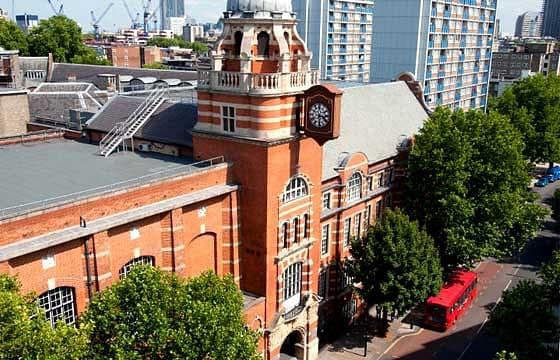Economic theory is highly relevant and applicable in today’s rapidly changing world. From the impact of immigration, to the organization of healthcare systems, economics touches on all areas of modern life.
This economics degree provides a thorough understanding of economic theory, with a focus on the practical link between theory and real-world application. You’ll learn the mathematics and statistics that underpin economics, and develop quantitative and analytical skills to evaluate wider social and political issues.
At the end of your first year you will be able to choose pathway between Economics and Economics and Econometrics, which focuses on quantitative aspects of economics.
-
Develop desirable transferable skills for a broad range of careers in economics, business, finance and beyond
-
Acquire analytical, problem solving and critical thinking skills, alongside a deep understanding of economic theory and ideas
-
Choose a pathway between Economics and Economics and Econometrics
-
Stand out from the crowd with a professional placement year – past students have undertaken placements with organisations like the Department for Work and Pensions, GlaxoSmithKline, RBS and HM Treasury
-
Study abroad with an optional exchange in Europe, America or further afield
-
Enjoy professional and social opportunities through the student-led Economics Society
-
Follow in the footsteps of recent graduates who now work for major global corporations.
The Chartered Institute of Management Accountants (CIMA) is the world's largest professional body of management accountants offering the most relevant accounting qualification for a career in business.
If you are considering a career in finance and business, the CIMA qualification will open doors with employers all over the world. On completing this course, you will be able to apply for 4 exemptions - all Certificate in Business Accounting modules (BA1, BA2, BA3, BA4).
Course content
This Economics BSc develops your understanding of applied economic theory and analysis, before building up to more complex and specialist study.
Year 1
Lay firm foundations for future study, exploring economic theory and the real-world application of economics. Build on your current mathematics knowledge.
-
Topics in Applied Microeconomics (15 Credits)
-
Topics in Applied Macroeconomics (15 Credits)
-
Introduction to Microeconomics (15 Credits)
-
Introduction to Macroeconomics (15 Credits)
-
Data Analysis 1 (15 Credits)
-
Data Analysis 2 (15 Credits)
-
Mathematics for Economists Post GCSE 1 (15 Credits)
-
Mathematics for Economists Post GCSE 2 (15 Credits)
-
Mathematics for Economists Post A Level 1 (15 Credits)
-
Mathematics for Economists Post A Level 2 (15 Credits)
Year 2
Develop your knowledge of micro and macro-economics. In Year 2 you'll also have the option to move to BSc Economics (Economics and Econometrics) depending on the electives you choose.
-
Intermediate Microeconomics 1 (15 Credits)
-
Intermediate Microeconomics 2 (15 Credits)
-
Intermediate Macroeconomics 1 (15 Credits)
-
Intermediate Macroeconomics 2 (15 Credits)
-
Introductory Econometrics (15 Credits)
-
Intermediate Econometrics (15 Credits)
-
Mathematics for Economists Post GCSE 3 (15 Credits)
-
International Trade (15 Credits)
-
Intermediate Mathematical Methods (15 Credits)
-
Global Financial Markets (15 Credits)
-
Nations and Firms in the Global Economy (15 credits)
-
Money and Banking (15 credits)
-
History of Economic Thought (15 Credits)
-
Digital Economy and Internet Markets (15 credits)
-
Micro-Placement (15 credits)
Year 3
Deepen your expertise in your chosen pathway of either Economics or Economics with Econometrics. Tailor your studies to your professional interests with elective modules from a wide selection in economics, finance, law and more.
-
Applied Econometrics (15 credits)
-
Financial Economics (15 credits)
-
Economics Project (30 credits)
-
Corporate Finance (15 credits)
-
Introduction to Financial Derivatives (15 credits)
-
International Finance (15 credits)
-
Monetary Economics (15 credits)
-
Labour Economics (15 credits)
-
Development Economics (15 credits)
-
Industrial Organisation (15 credits)
-
Company Law (15 credits)
-
Advanced Topics in Microeconomics (15 credits)
-
Economics and Society (15 credits)
-
Experimental Economics (15 credits)
-
Computational Economics (15 credits)
-
Nations and Firms in the Global Economy (15 credits)
-
Micro-Placement (15 credits)
-
Industry Projects (15 credits)
-
Summer Internship (15 credits)
-
Year Placement: Integrated Professional Training (15 credits)
Placements
You will have the option to complete a one-year work placement between years two and three of your degree, putting your skills into practice in a real-world setting. If you choose this option you will graduate with a BSc in Economics with Integrated Professional Training.
